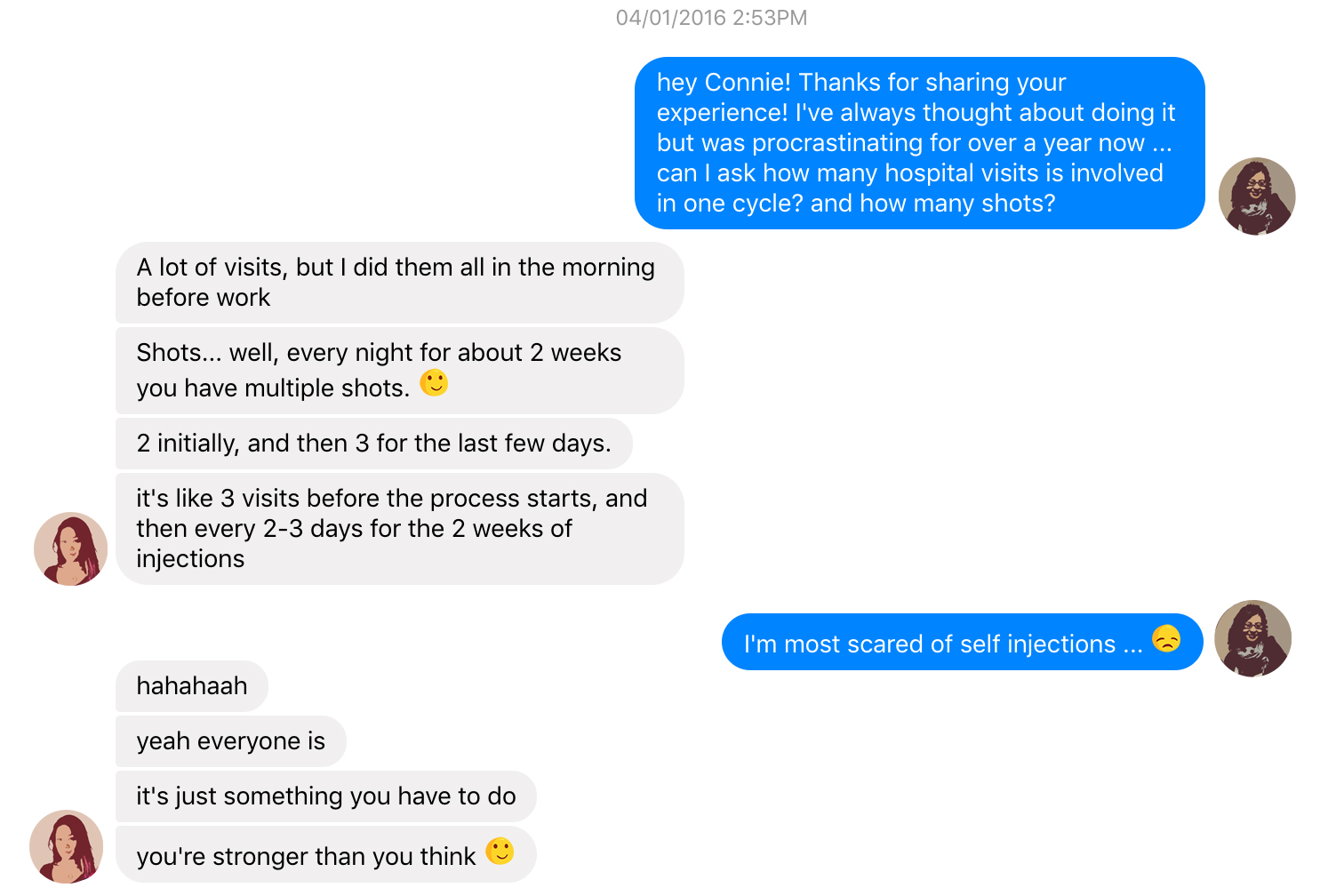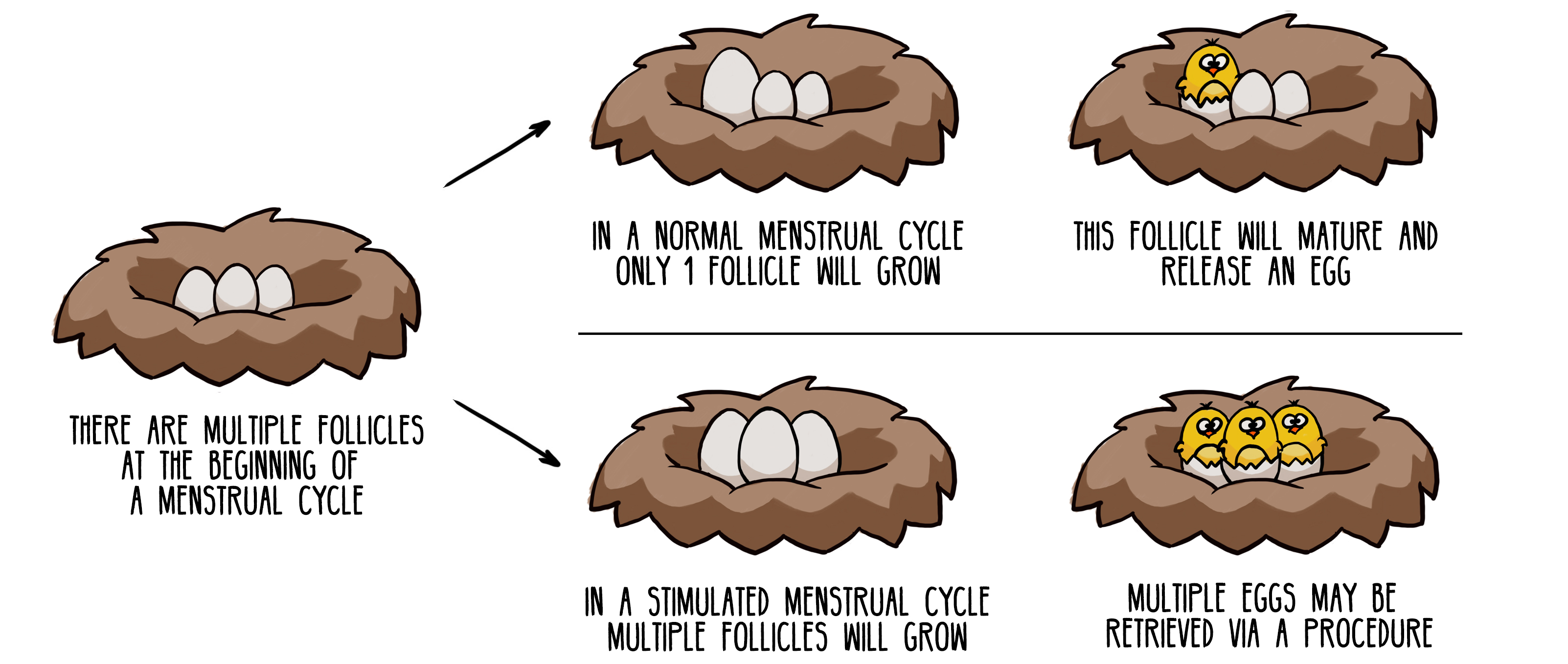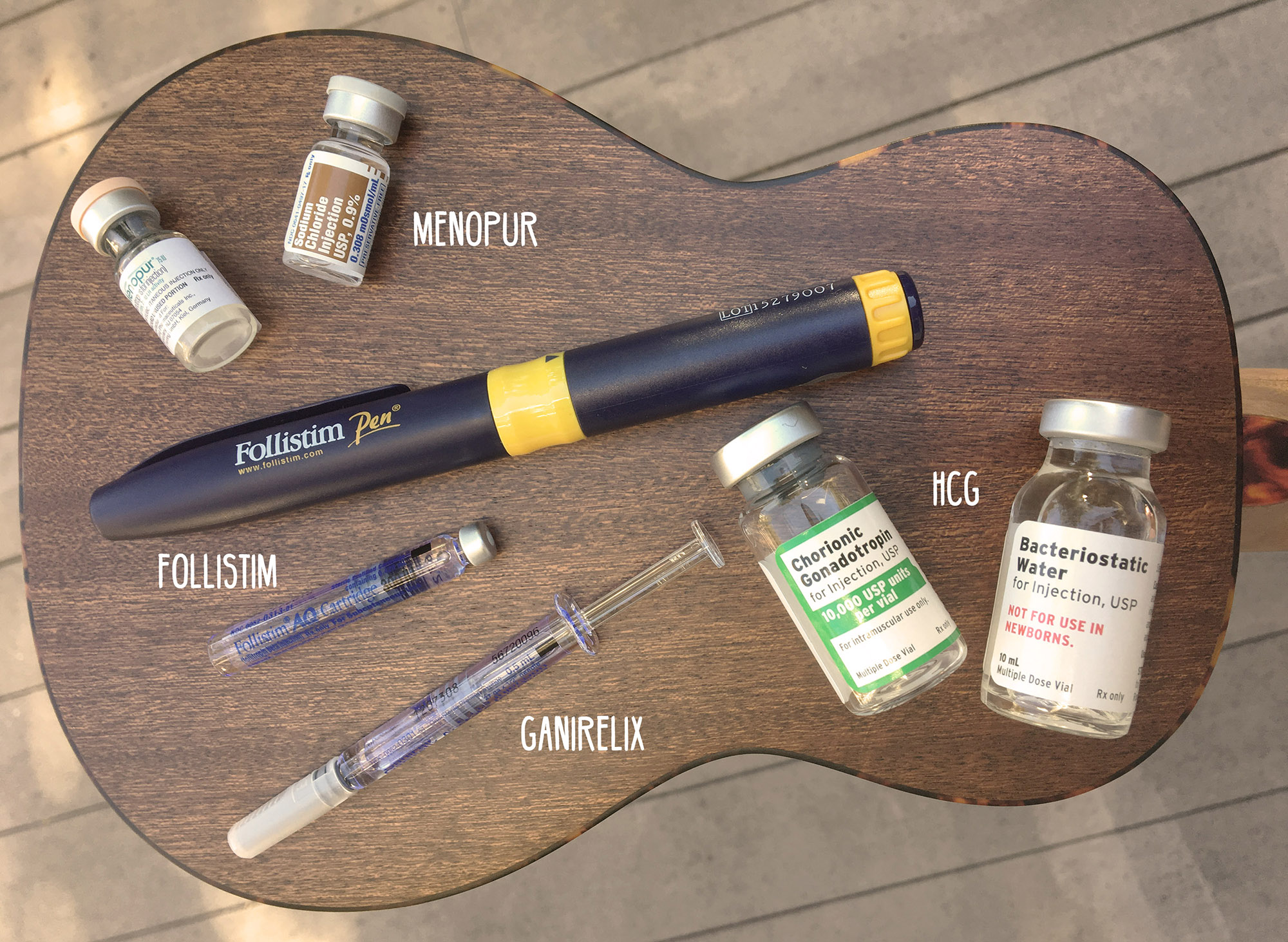My Story
I've heard about egg freezing and thought about doing it for a while. Being a procrastinator, I never spent much time getting to know it more. I was also skeptical about how good the technology is. Is it safe? Is it painful? Is the result even good?What got me started was my friend Connie's note about her egg freezing experience. Following her post, many women shared their stories and even posted photos of their beautiful babies born from frozen eggs. It looks totally legit. So I messaged Connie:

I ended up doing 4 rounds of egg freezing during the past year, freezing both eggs and embryos. Many people at my age don't need to do as many rounds, but my body didn't respond well to the first two protocols. After changing the protocol, I had much more successful results.
Anticipated a lot of pain and difficult scheduling, I have to say that this longer-than-usual journey is still easier than I thought. The physical pains are manageable; most of the appointments are early mornings so not disruptive to work at all; self-injection isn't scary any more.
But the journey isn't all great. There are a few things I wish I had known before starting the process, so I can better cope with the stress along the way.
How does egg freezing work?
In a normal menstrual cycle, there are multiple follicles in the ovaries at the beginning of the cycle. These follicles will compete for dominance - one follicle will become primary and grow. This primary follicle will evenually mature and release an egg (i.e., ovulation).The egg freezing process is to retrieve more than one egg in a menstrual cycle with the help of human hormones (i.e., a stimulated cycle). Those human hormones help multiple follicles grow and mature at a similar pace. When mature, the eggs are retrieved via a small procedure.

How egg freezing works
- Preparation. Some people need to take birth control pills or estrace tablets prior to the cycle.
- Stimulation. Start injecting medicines from period day 2. May need to visit the clinic every a few days to monitor the development of follicles.
- Retrieval. Follicles will mature after about 10 days of stimulation. Eggs will be retrieved via a small procedure under general anesthesia. You'll know the number of eggs retrieved immediately after the procedure.
- Freeze. You will know how many eggs are mature and frozen the next day. It may take a few days to fully recover from the whole process.
Five Things I Wish I Had Known
What is the risk of egg freezing?
There are two risks. The explicit risk is the side effect of the medication and inherent risk associated with any surgery and general anesthesia.The more important (and implicit) risk is the false hope. Some may refer to egg freezing as putting your eggs in the bank, but not all eggs you deposit will lead to healthy birth in the future. In fact, there's only ~10% chance for an egg to fertilize and develop into a healthy baby. So even if you freeze 10 eggs, there's still a nontrivial chance that none of them will work out.
How to mitigate the risk?
Freezing more eggs will increase the chance of success in the future. You might need to do at least two rounds to get to a success rate that you are comfortable with.Doctors also suggest freezing embryos if your situation allows, because the later in the development stage, the more certain you are about whether an egg will lead to a healthy birth. My doctor had a good analogy about this: when you have 10 new born babies, it's hard to tell how many of them will go to college. But when the same group grow older, like when they are in high school, then you have more information and are more certain about who will go to college.
How many eggs can I get in one round?
It depends on so many factors - age, health, the protocol used, etc. Women under 35 is likely to get more than 10 eggs in one cycle. As we grow older, we produce fewer eggs in each menstrual cycle, also with lower quality in general. So if you are very sure about doing egg freezing, then do it sooner rather than later.Getting too many eggs in one round might not be good either. Too much hormone medication may lead to ovarian hyperstimulation syndrome (OHSS) - the ovaries become swollen and painful, with other side effects like dehydration or shortness of breath. I experienced some of the symptons after my last round of retrival and it is a little overwhelming, especially when I had to hop on a work trip the next day. For this reason, doctors may control the amount of medication and target 13-15 eggs to retrieve in one round.
I only get 1 healthy egg in this round, what can I do?
The result varies a lot even for the same person, so if you have very few eggs retrieved in the first round, don't be too frustrated or give up. Discuss with your doctor and explore more options.I had very disappointing results in the first two rounds. My body didn't react well to the medication - one side of the follicles grew fast while the other side lagged behind. When those fast-growing follicles were mature and ready for retrieval, the rest were still pre-mature. So despite of having more than 12 follicles at the beginning of the cycle, I only managed to get 1 healthy embryo. This is very disappointing after going through all the injection, clinic visits and the surgery. The doctor used a different protocol in the following cycle, but the uneven response to medication happened again and led to the same result.
The disappointment bothered me for quite a while and I started to question if I did something wrong in the whole process. So I took a break in the treatment and scheduled an appointment to go through the results with my doctor. We discussed different options and decided to give it one more try with yet another protocol. Third time's a charm - I no longer had the uneven response and got much better results.
How difficult are the injection and surgery?
Self-injection was the most scary part for me before starting the process. It turned out easier than I thought. The clinic provides an injection training class, and you can always watch the video tutorials online.My trick was to first punch the needle into my belly, then slowly push in the fluid while watching my favorite TV shows as a distraction. Soon this became unnecessary as I mastered this skill. Menopur usually burns the most - some people suggest to cool the injection site with an ice pad prior to the injection. I found it burn less if I push the fluid really slowly.

Follistim and Menopur help ovaries produce eggs.
Ganirelix stops eggs from being released too early.
HCG triggers the release of mature eggs from the follicles.
Ganirelix stops eggs from being released too early.
HCG triggers the release of mature eggs from the follicles.
You are not alone
You might feel lonely during the process, especially when the results aren't ideal or there're more difficulties than you thought. Don't feel frustrated - many of us have gone through the same process and experienced the same issue.One girl at work organized a meetup with several of us who are going through the egg freezing process, during which I learnt that I'm not the only one with strange response to medication. This is both reassuring and encouraging - I got useful advice from them and was able to offer suggestions to those who are in a similar situation.
I want to make myself available as resource and support, for those who are going through the same process or are thinking about doing it in the future. Please email me if you have questions about egg freezing or just want to chat about it :) If you have a friend who might find this useful, please feel free to share this note with him or her. Cheers!
